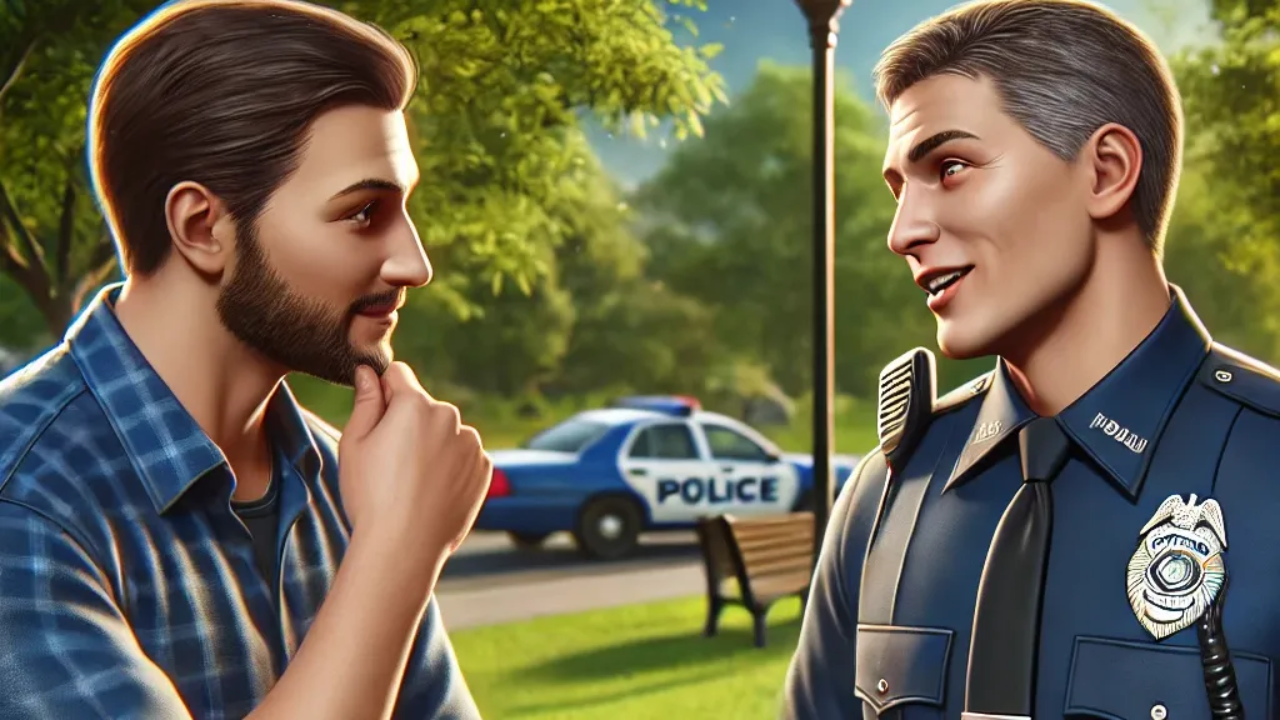
Hello everyone,
Effective communication is the backbone of law enforcement. Whether you’re de-escalating tense situations, interacting with community members, or collaborating with colleagues, your ability to communicate clearly and empathetically is critical. Today, we’ll explore how to develop and refine your communication skills, both verbal and non-verbal, to excel as a police officer.
1. Why Communication Matters in Law Enforcement
Communication in law enforcement goes beyond exchanging information—it builds trust, ensures safety, and fosters cooperation. Strong communication skills can:
- De-escalate Conflicts: Calm tense situations and prevent escalation.
- Strengthen Community Relations: Build trust and rapport with residents.
- Enhance Teamwork: Ensure seamless collaboration with fellow officers and other agencies.
2. Mastering Verbal Communication
Verbal communication is about more than just the words you use. Here’s how to improve:
- Be Clear and Concise:
- Avoid jargon or overly complex language, especially when speaking to the public.
- Use simple, direct language to ensure your message is understood.
- Adapt to Your Audience:
- Tailor your tone and vocabulary based on the situation and the person you’re speaking with.
- Use a calm and respectful tone, even in stressful situations.
- Ask Open-Ended Questions:
- Encourage dialogue by asking questions that require more than a yes or no response.
- For example: “Can you tell me what happened here?” instead of “Did you see what happened?”
3. The Power of Non-Verbal Communication
Non-verbal cues can reinforce or undermine your spoken words. Focus on:
- Body Language:
- Stand tall with a neutral stance to project confidence and openness.
- Avoid crossing your arms, as it can appear defensive or closed off.
- Eye Contact:
- Maintain appropriate eye contact to convey attentiveness and respect.
- Avoid prolonged staring, which may come across as intimidating.
- Facial Expressions:
- Use expressions that match the tone of the situation, such as a calm demeanor during tense moments.
4. Listening: The Unsung Hero of Communication
Active listening is a vital skill that demonstrates empathy and understanding:
- Focus Fully:
- Avoid distractions and give the speaker your full attention.
- Use nods or small verbal cues like “I understand” to show you’re engaged.
- Paraphrase and Reflect:
- Summarize what the speaker said to confirm understanding.
- For example: “So, you’re saying the issue started when…”
- Be Patient:
- Allow people to finish speaking without interrupting, even if you think you know the answer.
5. Handling Difficult Conversations
Law enforcement often involves challenging discussions. Here’s how to navigate them:
- Stay Calm Under Pressure:
- Take deep breaths and maintain a steady tone, even in heated exchanges.
- Acknowledge Emotions:
- Recognize the feelings of others without becoming defensive or dismissive.
- For example: “I understand this situation is frustrating for you.”
- Focus on Solutions:
- Shift the conversation toward finding resolutions rather than dwelling on problems.
6. Developing Your Communication Skills
Like any skill, communication can be improved with practice:
- Role-Play Scenarios:
- Practice mock interactions with colleagues or mentors to refine your responses.
- Seek Feedback:
- Ask for input on your communication style and areas for improvement.
- Take Courses:
- Enroll in workshops or classes focused on public speaking, negotiation, or interpersonal communication.
7. The Role of Empathy in Communication
Empathy allows you to connect with others on a deeper level:
- Put Yourself in Their Shoes:
- Try to understand the perspective and emotions of the person you’re speaking with.
- Be Compassionate:
- Show kindness and patience, especially when dealing with vulnerable individuals.
Final Thoughts
Effective communication is essential for success in law enforcement. By mastering verbal and non-verbal skills, practicing active listening, and demonstrating empathy, you can build trust, foster cooperation, and enhance your ability to serve your community.
At Armogan Training, we’re here to help you develop the skills you need for a successful career in law enforcement. Visit us at www.armoganct.com for resources, tips, and coaching. Together, let’s strengthen your communication and leadership abilities.
Best regards,
Dina, Armogan Training Team
Police Candidate Getting Started Workshop
Learn about every phase of the hiring process!!!
-Plus hidden BONUSES!!!
We hate SPAM. We will never sell your information, for any reason.
